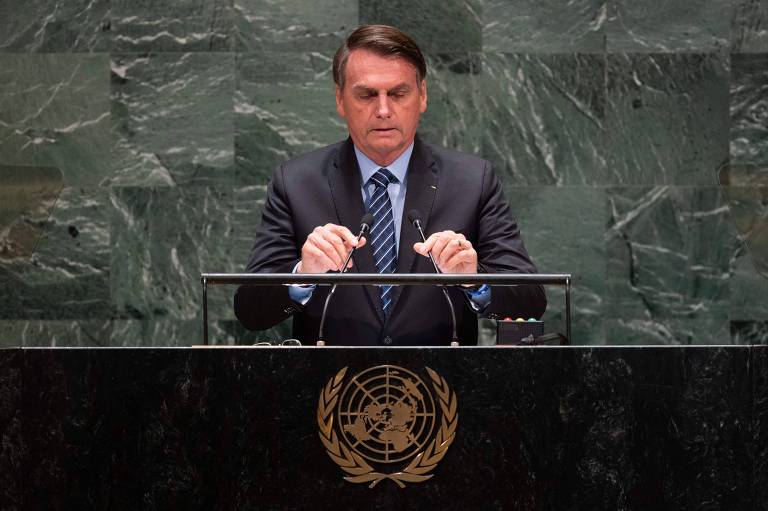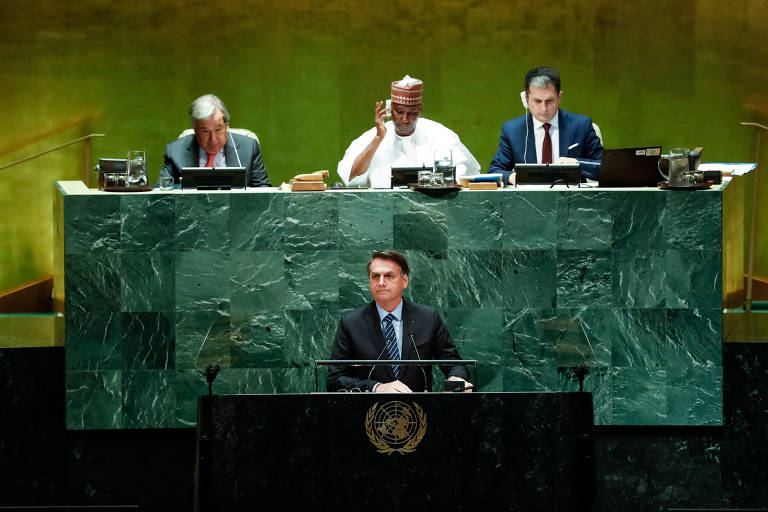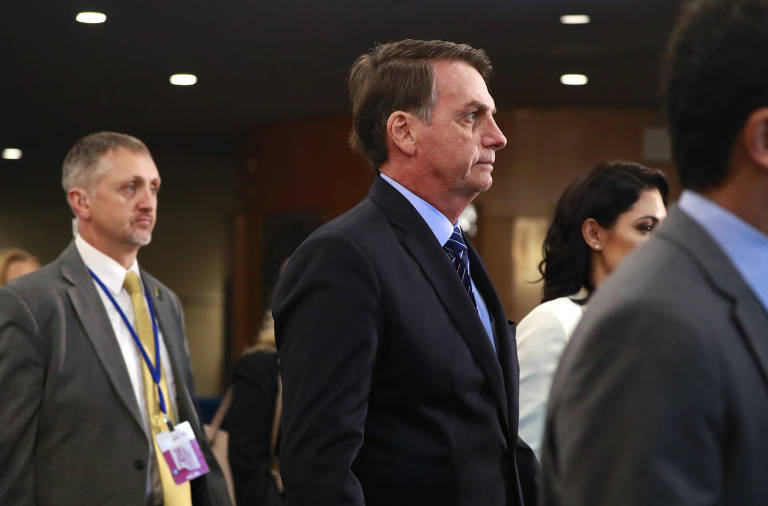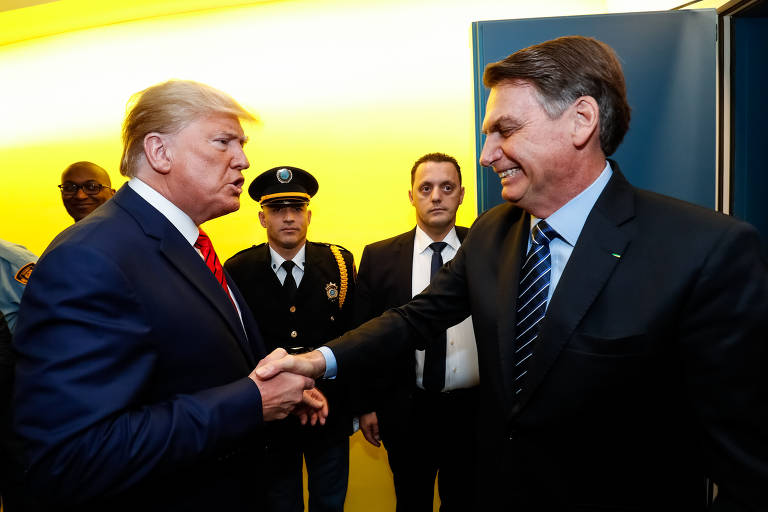On September 2, 2020, the United States government imposed sanctions on the International Criminal Court (ICC) prosecutor, Fatou Bensouda, and another senior prosecution official, Phakiso Mochochoko. In addition, US Secretary of State Michael Pompeo announced that the United States had restricted the issuance of visas for certain unnamed individuals “involved in the ICC’s efforts to investigate US personnel.”
The sanctions on Bensouda and Mochochoko implemented a sweeping executive order issued on June 11, 2020 by President Donald Trump. This order declared a national emergency and authorized asset freezes and family entry bans against ICC officials who were identified as being involved in certain activities. Earlier, the Trump administration had repeatedly threatened action to thwart ICC investigations in Afghanistan and Palestine. In a precursor step, in 2019, the Trump administration revoked the prosecutor’s US visa.
The following questions and answers discuss the Trump administration’s unprecedented authorization of a sanctions program aimed at undermining the work of the ICC.
On September 2, under Executive Order 13928, the “Executive Order on Blocking Property Of Certain Persons Associated With The International Criminal Court,” US officials added Fatou Bensouda, the ICC prosecutor, and Phakiso Mochochoko, the head of a division within the prosecutor’s office, to the Specially Designated Nationals and Blocked Persons List (the SDN List). This list is maintained by the US Department of Treasury’s Office of Foreign Assets Control (OFAC).
Their designation had two immediate effects. First, any property held by Bensouda and Mochochoko (or the property of any entity of which they own 50 percent or more) in the United States became “blocked.” Although any property they might have in the US has not been seized, they would not be able to exercise any rights over it, including use or sale. In addition, US persons or entities located anywhere in the world would not be able to transact with or provide services to either Bensouda or Mochochoko, unless they received a license to do so from the US government. US “persons” are defined under the executive order as “any United States citizen, permanent resident alien, entity organized under the laws of the United States or any jurisdiction within the United States (including foreign branches), or any person in the United States.”
Second, all property that might belong to Bensouda or Mochochoko that comes within a US jurisdiction would be “blocked.” Because the vast majority of international trade is conducted via the US dollar this has potentially broad implications. US dollar-denominated transactions—even if they are between two non-US parties—usually require a bank under US jurisdiction to handle the transactions. Thus, any transaction that passes through them, even momentarily, would also be blocked.
The importance of the US dollar and the fear of losing access to risk-averse US banks means that most major financial institutions around the globe regularly refuse to conduct transactions with or for individuals on the SDN List. This is so even in transactions in which there is no connection to US dollars, US persons, or US jurisdiction. This broadens the reach of the sanctions far beyond blocking assets like bank accounts or property physically located in the US and can affect the ability of designated people to conduct any economic transactions at all on a global basis. In addition, the fear of potentially running afoul of this executive order’s vague and undefined prohibition on the provision of material assistance or support to sanctioned people creates additional risk.
In addition, Bensouda and Mochochoko, who were sanctioned as individuals, and their immediate family members are presumed to be subject to US visa restrictions under the terms of the executive order.
The executive order does not name “persons”—that is individuals or entities—but the US government has discretion on listing additional persons pursuant to the order. The threshold needed to sanction additional individuals or organizations is fairly low.
The designating authority need only have a “reasonable basis to believe” that the target falls under one of the designation prongs. Furthermore, there is no guidance regarding how concrete, direct, or even effective an activity must be in order to be deemed an “effort” to “investigate, arrest, detain, or prosecute.”
The executive order specifies that only “foreign persons” can be listed. Therefore, a US citizen or US-incorporated company could not be added to the SDN List. However, the impact of the sanctions program on dual-US citizens—whether they would qualify as “foreign persons”—is unclear. The foreign-incorporated subsidiaries and affiliates of US-based companies and organizations would qualify as “foreign persons.”
To be designated for sanctions, a “foreign” individual or organization must also fall under one of the following “designation prongs” of the executive order:
(A) have directly engaged in any effort by the ICC to investigate, arrest, detain, or prosecute any US personnel without the consent of the US;
(B) have directly engaged in any effort by the ICC to investigate, arrest, detain, or prosecute any personnel of a country that is an ally of the US without the consent of that country’s government;
(C) have materially assisted, sponsored, or provided financial, material, or technological support for, or goods or services to or in support of, any activity described in (A) or (B) or any person whose property and interests in property are blocked pursuant to this order (that is, presently, only Bensouda or Mochochoko); or
(D) be owned or controlled by, or to have acted or purported to act for or on behalf of, directly or indirectly, any person whose property and interests in property are blocked under this order.
The order authorizes the US secretary of state to designate sanctions targets, in consultation with the US treasury secretary and the US attorney general. In practice, the Department of Treasury, and particularly OFAC, plays a critical role in determining who is designated as it maintains the SDN List, defends listings, and has the most experience developing materials to determine whether an individual or entity should be designated for sanctions. OFAC also plays a leading role in enforcing the prohibitions that flow from designations.
The effect of the sanctions is by no means limited to those designated under the order. They have a broader reach. Significant civil or criminal penalties may be enforced against people or entities anywhere in the world that “violate, attempt to violate, conspire to violate, or cause a violation of” the executive order by interacting with a designated person in a way that violates the prohibitions contained in the order’s sections 1(a), 3, and 5.
These prohibitions are broad and include:
- transferring, paying, exporting, withdrawing, or otherwise dealing with the property and interests in property of a designated person located in the US or in the possession or control of any US person;
- making any contribution or provision of funds, goods, or services by, to, or for the benefit of any designated person;
- receiving any contribution or provision of funds, goods, or services from any designated person;
- any transaction that evades or avoids, has the purpose of evading or avoiding, causes a violation of, or attempts to violate any of the prohibitions contained in the executive order; or
- any conspiracy formed to violate any of the prohibitions set forth in the executive order.
The severity of penalties is intended to deter others from interacting with designated people. Interacting with a designated person carries a civil penalty of the greater of up to US$307,922 or twice the value of the transaction that violated the order. Prohibited interactions with a designated person also subject an individual or entity to a criminal fine of up to $1,000,000, and for individuals, up to 20 years in prison.
While US persons cannot be designated under the executive order, they can be subject to these penalties for violating the order, becoming potential targets for enforcement. Therefore, US individuals and institutions (whether in the US or outside the US) are prohibited from any transactions with Bensouda and Mochochoko and must freeze any property belonging to either. The same restrictions apply to any foreign person or entity located in the US.
While the ICC itself has not been sanctioned, the executive order and the sanctions on Bensouda and Mochochoko could have serious consequences for the work of the ICC. The effects of the sanctions are by no means limited to the individuals targeted but may have wide-reaching consequences. In particular, current service providers to the ICC—from banks to vending machine companies—may reassess whether continuing to work with the institution is prudent given the risk of inadvertently violating US sanctions.
Although only Bensouda and Mochochoko have been sanctioned, to minimize risk, financial institutions often go out of their way to comply with US regulations and may preemptively refuse to deal with transactions involving the ICC even if Bensouda and Mochochoko are not involved. In addition, the executive order is aimed at, and has created apprehension and uncertainty for, nongovernmental organizations, consultants, and lawyers who work with the ICC in investigative and adjudicative capacities.
The executive order was issued under authority granted to the president by the International Emergency Economic Powers Act (IEEPA). The US Congress enacted the law in 1977 to enable the president to declare national emergencies with limited congressional oversight. The law allows the president to declare an emergency to “deal with any unusual and extraordinary threat, which has its source in whole or substantial part outside the United States, to the national security, foreign policy, or economy of the United States.”
To meet this requirement, Executive Order 13928 states:
that any attempt by the ICC to investigate, arrest, detain, or prosecute any United States personnel without the consent of the United States, or of personnel of countries that are United States allies and who are not parties to the Rome Statute or have not otherwise consented to ICC jurisdiction, constitutes an unusual and extraordinary threat to the national security and foreign policy of the United States.
Once a national emergency has been declared, the president has broad powers to regulate economic transactions in relation to the emergency.
The US has frequently imposed sanctions against a range of regimes and actors involved in human rights violations, corruption, or other actions the US wants to condemn. Some have targeted rights abusers and officials responsible for significant harm to their populations, even if not uniformly. For example, in October 2020, the US sanctioned officials in Belarus for their role in fraud in the August 2020 presidential elections and subsequent crackdown on protesters. In 2018, the US sanctioned 17 Saudi government agents in connection with their alleged involvement in the killing of the journalist Jamal Khashoggi, including a former top advisor to Crown Prince Mohammed bin Salman. The US has also sanctioned companies and individualsinvolved with providing financial and logistical support to the Islamic State (ISIS).
Though sanctions are at times counter-productive and politically motivated, they can be an important and effective tool to punish human rights abusers, particularly in situations where there has been little or no accountability. Sanctions are not a substitute for prosecutions, but they can send a powerful message to abusers that their abuse will not be tolerated, and may have a material impact on the abusers, prompting them to change their conduct. Even if targets do not hold US assets, the US dollar’s position as the world’s preeminent reserve currency and medium of exchange means that US sanctions can have a crippling effect on designated targets.
The US government has never previously deployed sanctions against officials at an international organization or court. Here, the US has decided to utilize the coercive powers of sanctions against the ICC, a court of last resort mandated to fight impunity for serious international crimes under the Rome Statute, an international treaty of which most core US allies are members.
On October 1, 2020, the Open Society Justice Initiative, a public interest law center, together with four law professors, filed a complaint before US federal courtalleging that the executive order and the subsequent designations of Bensouda and Mochochoko violated the plaintiffs’ rights under the US constitution.
The plaintiffs allege, among other issues, that their First Amendment right to freedom of speech has been violated as the threat of civil or criminal penalties associated with enforcement of or designation for sanctions under the order. In their submission they contend that this has caused them to “discontinue, abandon, or reconsider” a range of activities in support of the ICC’s work. The case remains pending.
In addition, in 1988, the IEEPA was amended—known as the Berman Amendment—to protect the exchange of information and informational materials in various formats, including publications, photographs, tapes, and more. This provision generally exempts the exchange of such information from the president’s regulatory authority. The plaintiffs in the lawsuit also allege that the order purports to prohibit the exchange of protected information, and therefore is not permitted under IEEPA.
First Amendment challenges to executive orders under IEEPA have had some success in recent months. Most recently, federal judges have granted preliminary injunctions preventing the implementation of two executive orders imposing restrictions on the Chinese mobile applications TikTok and WeChat on the basis that the president may have overstepped his authority under the Berman Amendment’s protections, thus violating users’ First Amendment rights.
However, in general, US courts have demonstrated a high degree of deference to the US government on national security matters. Furthermore, given the relatively low burden of proof on the government for designation and enforcement, challenges have rarely been successful.
The US Congress retains the ability to terminate national emergencies by resolution. However, without presidential support this would require the resolution to pass with a “veto-proof majority” (that is, a two-thirds majority by both the House of Representatives and the Senate). The US Congress has never terminated a state of emergency declared under IEEPA.
The EU has enacted a “Blocking Statute” to counter the extraterritorial reach of unilateral sanctions imposed by other countries that it considers to be unlawful. The Blocking Statute broadly restricts EU-based individuals and entities from complying with sanctions that the EU considers abusive in their extraterritorial reach and provides for the recovery in court of damages caused by the extraterritorial application of the specified foreign sanctions.
The Blocking Statute’s primary purpose is to protect EU individuals and entities engaging in international trade in a manner compliant with EU law, but in breach of what it considers to be unlawful or abusive sanctions imposed by countries outside the EU. At a political level, it also reflects the EU’s disapproval of sanctions with extraterritorial reach imposed by other countries that the EU considers to be abusive or unreasonable.
The EU’s Blocking Statute has only prohibited individuals and entities in the EU from complying with the US sanctions on Iran, Cuba, and Libya. Historically, the Blocking Statute has not been vigorously enforced though it appears that that may be changing with respect to both Iran and Cuba.
Given the EU’s strong support for the ICC, the EU should consider adding the executive order to the list of unilateral US sanctions that receive Blocking Statute protection.
In response to the executive order in June, 67 ICC member countries, including key US allies, issued a joint cross-regional statement expressing “unwavering support for the court as an independent and impartial judicial institution.” This was accompanied by statements from the European Union, the president of the ICC’s Assembly of States Parties (ASP), some national governments, and nongovernmental organizations in the US and globally. Following the September designations of the two ICC officials, the EU, the ASP president, some national governments, and nongovernmental groups again spoke out. In November, 71 ICC member countries jointly reaffirmed their support for the ICC as a court of last resort in a statement delivered before the UN General Assembly, implicitly rejecting US actions aimed at undermining the court by noting that “sanctions are a tool to be used against those responsible for the most serious crimes, not against those seeking justice. Any attempt to undermine the independence of the Court should not be tolerated.”










